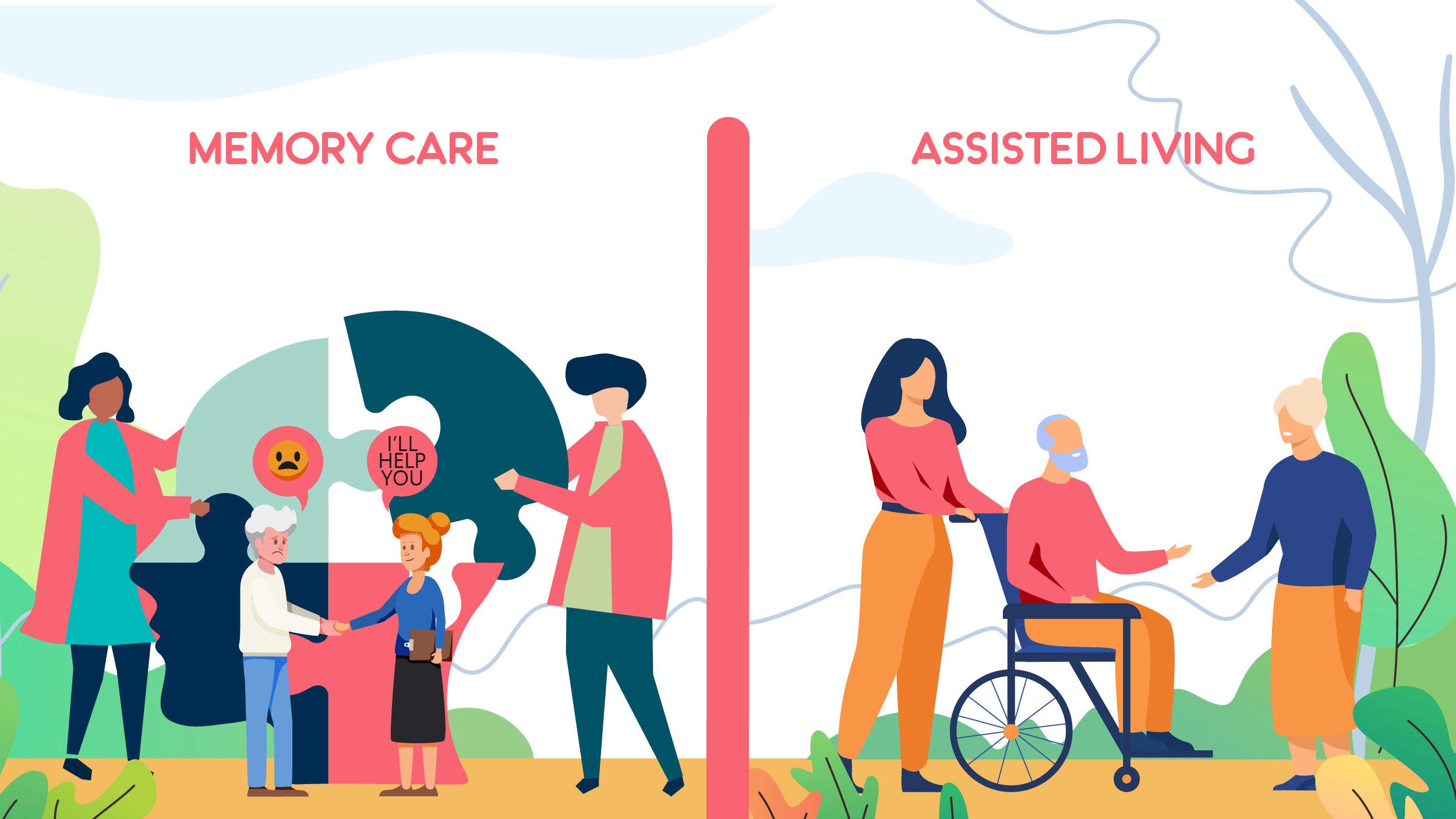Producing a Safe and Helpful Environment for Alzheimer's Care
The development of a safe and helpful atmosphere for people with Alzheimer's is vital in improving their quality of life. Discovering these multifaceted techniques can disclose vital insights right into reliable caregiving approaches that may transform the daily experiences of both clients and caregivers.
Recognizing Alzheimer's Demands
Regularly, individuals with Alzheimer's condition display a series of demands that require tailored approaches to care. As the condition proceeds, cognitive decline materializes in numerous means, influencing memory, thinking, and even the capability to perform day-to-day activities. Caregivers have to identify these evolving needs to provide ideal assistance and make certain a greater quality of life for those affected.
One important element of recognizing Alzheimer's demands is recognizing the value of routine and knowledge. People typically discover comfort in recognized patterns, which can minimize anxiousness and complication. Caretakers must aim to develop organized everyday schedules that incorporate meaningful tasks lined up with the person's capacities and passions.
In addition, reliable communication is paramount. People with Alzheimer's might have a hard time to express themselves or comprehend intricate language. Caretakers ought to utilize straightforward, clear language, use non-verbal hints, and technique energetic paying attention to cultivate understanding and connection.
Caretakers should motivate engagement in community tasks or family events, promoting a feeling of belonging and purpose. Recognizing these diverse demands is essential for creating a helpful care environment.
Creating a Safe Home
Creating a safe home for individuals with Alzheimer's condition is vital to reducing dangers and promoting freedom. The design of the space need to prioritize safety while allowing for personal convenience. Initially, get rid of potential threats such as loose carpets, sharp things, and clutter, which can cause falls or accidents. Make sure that pathways are clear and well-lit, as appropriate illumination lowers disorientation and enhances mobility.
Incorporating adaptive features is additionally crucial. Set up grab bars in shower rooms and near stairways, and consider making use of non-slip mats in damp areas. Furthermore, utilizing contrasting colors for floors and walls can aid in differentiating rooms, aiding to reduce complication.
Experience is very important for individuals with Alzheimer's. Customizing the environment with acquainted things and pictures can enhance a sense of belonging and safety - Alzheimers Care Charlotte. It is likewise beneficial to have a marked area for everyday activities, such as reading or crafting, which can provide framework to their day
Lastly, executing a protected exterior room permits secure exploration while linking with nature. By thoughtfully making the home setting, caretakers can considerably enhance the quality of life for people coping with Alzheimer's condition.
Enhancing Interaction Abilities

Non-verbal communication, consisting of face expressions, gestures, and touch, plays a crucial duty in conveying empathy and understanding. Keeping eye get in touch with and a tranquil demeanor can enhance the convenience degree of the person, promoting a sense of safety.
Moreover, it is very important to practice active listening. This includes being totally existing, revealing perseverance, and permitting the person to reveal themselves without interruption. Repeating may be required; caretakers should be prepared to take another look at concerns or topics, as individuals with Alzheimer's might battle with memory recall.
Additionally, making use of visual help or signs, such as pictures or acquainted things, can facilitate acknowledgment and involvement. Ultimately, improving communication abilities is about building trust fund and creating a setting where people feel heard, valued, and understood, therefore improving their top you could check here quality of life.
Motivating Social Interaction
Cultivating purposeful social communications can greatly boost the wellness of people with Alzheimer's disease. Involving with others not just helps combat sensations of seclusion however likewise stimulates cognitive function and psychological wellness. Structured social activities, such as team games, arts and crafts, or music treatment, create possibilities for residents to connect with peers and caregivers, which can result in improved mood and reduced stress and anxiety.
Creating a welcoming atmosphere that urges socializing is necessary. This can be achieved by arranging communal rooms that assist in communication, such as relaxing seating locations or task rooms. Additionally, incorporating familiar and culturally pertinent tasks can browse this site stimulate memories and encourage involvement, enabling individuals with Alzheimer's to really feel even more connected to their previous experiences.
Furthermore, caregivers must be trained to acknowledge and advertise social involvement amongst citizens. By focusing on social communication, we can dramatically improve the lives of those living with Alzheimer's, promoting a sense of neighborhood and belonging.
Sustaining Caretaker Well-being

To support caretakers, companies ought to offer regular training and instructional sources to enhance their understanding of Alzheimer's illness and caregiving techniques. Supplying access to respite treatment solutions enables caretakers to take necessary breaks, decreasing stress and fatigue - Alzheimers Care Charlotte. In addition, promoting a neighborhood via support teams can promote emotional sharing and the exchange of useful guidance amongst caretakers, developing a network of shared support
Mental health sources, such as therapy services, can also be crucial in addressing the psychological toll caregiving can take. By click for more info prioritizing caregiver well-being, we produce an even more lasting caregiving environment that not only benefits the caregivers themselves however likewise enhances the overall quality of treatment received by individuals with Alzheimer's. Eventually, supporting caretakers is a necessary element in promoting a thoughtful and reliable treatment setup.
Verdict
In final thought, the development of a supportive and safe setting for individuals with Alzheimer's is vital to improving their quality of life. By focusing on safety with thoughtful layout, promoting emotional well-being with familiar aspects, and advertising involvement through structured routines, caretakers can substantially impact the overall experience of those influenced by this condition. Moreover, supporting caregiver health is vital, as it inevitably adds to a more effective and caring care setting.
Rep may be required; caretakers must be prepared to review concerns or topics, as individuals with Alzheimer's might battle with memory recall.
